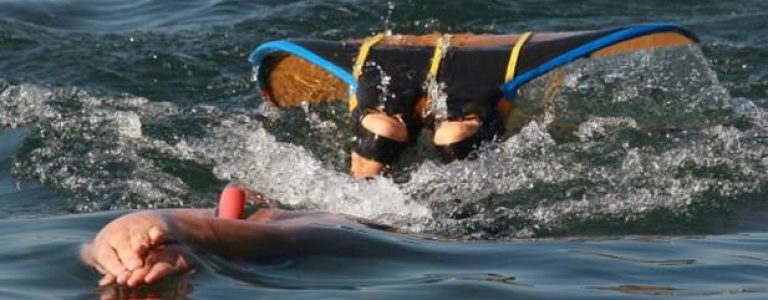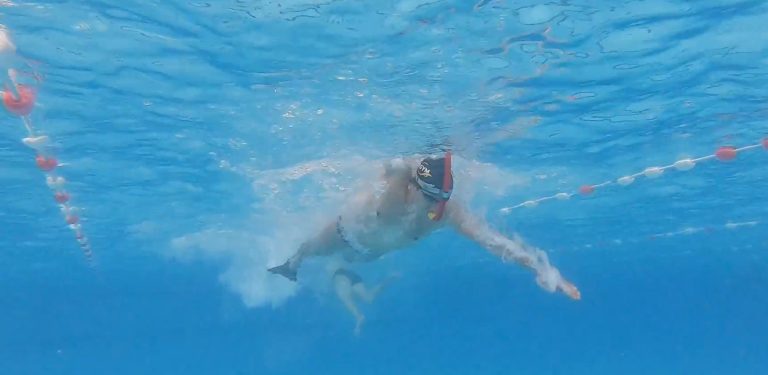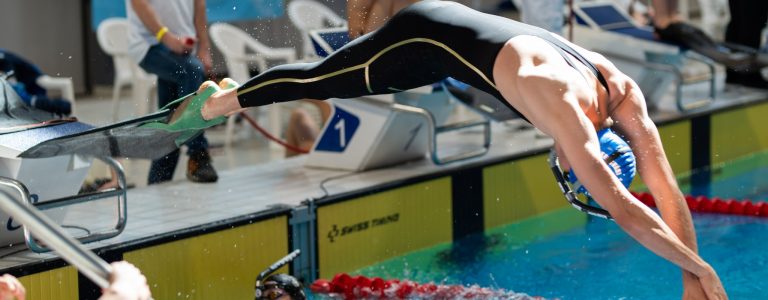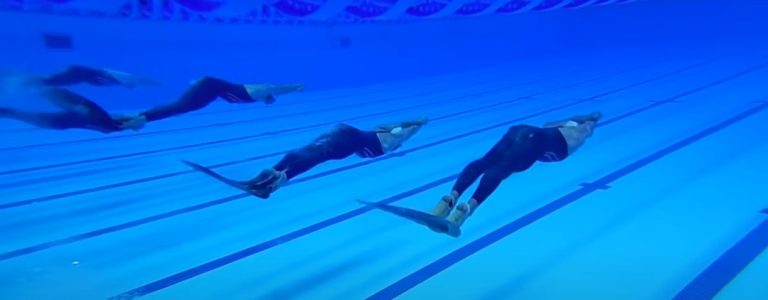Finswimming is an aquatic sport where athletes engage in water racing using specialized equipment like goggles or masks, fins (monofins or bi-fins) and snorkels
This sport offers a dual appeal: it is highly competitive, focusing on speed and agility in races, and also serves as a recreational activity, allowing enthusiasts to enjoy the underwater experience. Ideal for those seeking the excitement of competition or the pleasure of leisurely swimming, finswimming caters to a diverse range of aquatic enthusiasts.
Check here:
European and World Records
Croatian Records
The Finswimming Techniques
Surface swimming
In this style, athletes wear goggles or a mask, snorkel, and monofin and must stay on the water’s surface. Races include individual events from 50 to 1500 meters and relays of 4×100 and 4×200 meters, also mixed male and female. It is held also in open waters.
Watch this video as an example:
Final of 50 surface men at World Championship 2022
Bi-fins swimming
Athletes swim on the surface using goggles or a mask, snorkel, and two fins. Short races of 50 to 400 meters occur in pools, while 4km and 6km long distance races take place in open waters.
Relays are also part of competitions’ programs.
Watch this video as an example:
Final of 50 bifins men at World Championship 2016




Immersion
Swimmers use goggles or a mask, monofin, and breathing apparatus underwater in a pool. Races are 100m, 200m and 400m long, and athletes must keep their face submerged throughout the race or face disqualification. The breathing apparatus can’t be exchanged or left behind during the race.
Watch this video as an example:
Final of 100 immersion women at World Games 2022
Apnea
This underwater technique requires goggles or a mask, a monofin, and breath-holding. It features 50m races, with swimmers needing to stay submerged to avoid disqualification. AP is not held in open water for safety reasons.
Watch this video as an example:
Final of 50 apnea women at World Games 2022
- Low Impact Exercise: Being a water-based sport, it’s gentle on the joints, making it suitable for a wide range of ages and fitness levels.
- Breath Control: It teaches efficient breath control, which is beneficial for respiratory health and can be applied in other sports and activities.
- Full-body Workout: Finswimming engages various muscle groups, providing a comprehensive workout that tones and strengthens the body.
- Cardiovascular Fitness: It significantly improves heart health and increases lung capacity due to the aerobic nature of the sport.
- Fun and Enjoyment: Above all, finswimming is enjoyable, offering a unique and exciting way to stay active and healthy.
- Competitive swimming improvement: the use of fins and snorkel may upgrade the use of leverages of the body (arms, legs, core muscles, backbone) and increase the attitute of swimmers to work in anaerobic conditions –> check this document
- Mermaiding and Snorkeling: Focusing on the recreational and aesthetic aspects of aquatic sports, it is possible to promotie enjoyment and appreciation of underwater experiences.
- Lifesaving and Rescue Services: Offering training in lifesaving techniques and integrating with local rescue services to provide practical skills in aquatic emergency response.
- Rehabilitation and Adaptive Activities: Tailored programs utilize finswimming techniques for rehabilitation of injured individuals, and adaptive swimming methods for persons with disabilities, emphasizing the therapeutic benefits of water sports.
- Scuba Diving, Freediving and Underwater Exploration: Courses in scuba diving and freediving to explore the depths and mysteries of underwater environments, including ecological education about aquatic conservation.
- Underwater Hockey and Rugby: Introduction to these unique and engaging sports to broaden the athletic and competitive appeal of underwater activities.
What health benefits can it bring to you?
Which synergies with other activities?
© 2025 All Rights Reserved.
